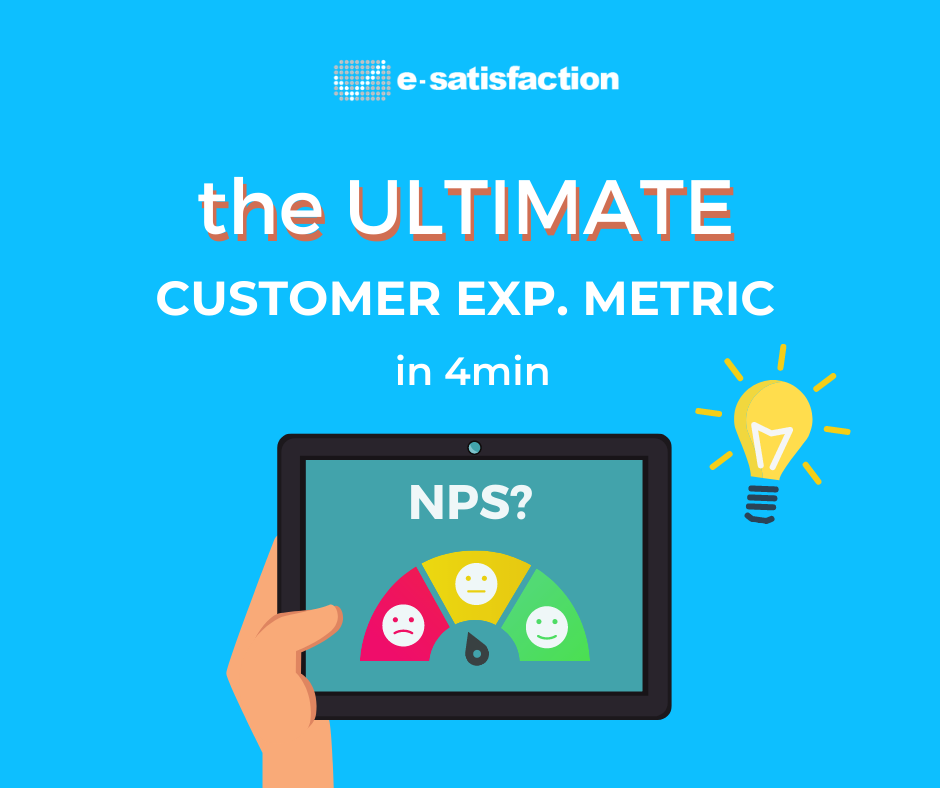NPS: Must Have Metric for Every e-shop!

Imagine that you want to buy a new pair of shoes. What you would do, is to spend some time (minutes or hours) searching for the e-shop that offers the shoes you like, in the best price possible, with the best customer service department, the best possible shipping & return policy and the best look and feel that will make you trust the e-shop before buying. Now, I want you to imagine that your best friend suggests you to buy your shoes from an e-shop that he had already used in the past to buy their shoes and they delivered him an amazing shopping experience! How likely is that you will purchase your shoes from this e-shop without going through all this time consuming search? Well, you know it. Very likely!
Research has shown that consumers are 4 times more likely to buy from an e-shop that has been referred by their friends, and according to an HBR study, 48% of customers who had negative experiences with a company told 10 or more people!
Now, let’s think this case from the online retailer’s perspective. Is there a way for online retailers (e-shops) know what their customers would say for the service they provide? Would their customers refer their e-shop to friends and family? And if they would, how can online retailers find who the ambassadors of their e-shop are? Also, how can online retailers identify customers that had negative experiences and try to convert their opinion, avoiding negative Word of Mouth.
You got 15 minutes? Let our team show you
how we can help your business grow!
A simple and so important question
There’s a pretty simple metric called Net Promoter Score, or NPS, that is used to measure customer loyalty and to distinguish those who have negative feelings from ambassadors. But first of all, what exactly is NPS? Net Promoter Score (NPS) is a customer satisfaction metric that was developed by Fred Reichheld, Bain & Company, and Satmetrix in 2003. It works by simply asking a quick and easy question, using a 0-to-10 scale;
“How likely is it that you would recommend our company to a friend or a colleague?”
Based on their responses, the respondents are then segmented into three (3) segments:
- Promoters (score 9-10) are loyal enthusiasts who will keep buying from your
company and urge friends to do the same! - Passives (score 7-8) are satisfied but indifferent customers who are susceptible to
competition. - Detractors (score 0-6) are unhappy customers who are capable of harming your
brand and spread the majority of the bad word-of-mouth.
This is the first benefit of using NPS, as it provides really interesting customer segments, knowing who will promote a brand and who will have a negative effect when talking about the brand.

To get the full value, a lot of brands are going one step further by calculating the Net Promoter Score, by subtracting the percentage of your “Detractors” from the percentage of your “Promoters”.

The result of this equation is what is known as Net Promoter Score and can range from a low of -100% (if every customer is a Detractor) to a high of 100% (if every customer is a Promoter).
For example, assume 500 responses to the NPS question, distributed as follows:
- 100 responses from 0 to 6 (detractors);
- 150 responses from 7 to 8 (passives);
- 250 responses from 9 to 10 (promoters).
Let’s do the math!
Step 1: Calculate the percentages of every group individually. In the example, 20%, 30%, and 50% respectively.
Step 2: Subtract the percentage of detractors, i.e., 20%, from the percentage of promoters, i.e., 50%.
Step 3: The NPS is 30%!
What can I do with NPS?
Now that you know the way to determine how loyal are your online customers, let’s explore what insights can you draw from this metric? A lot of brands monitor NPS on a constant basis and are alerted in the case that significant variations are detected. Other, extremely useful ways to use NPS can also be the following:
- Identify the ambassadors of your business and motivate them to speak about you to their friends.
- Track product categories that create promoters or detractors
- Reverse the opinion of your detractors to reduce negative word of mouth
- Detect passive customers and convert them to promoters!
- Compare your Net Promoter Score with the e-commerce market
NPS and e-satisfaction
We strongly believe that NPS is a really important metric for all e-shops, as customer acquisition is maybe the most resource demanding task for online retailers.
e-satisfaction calculates and provides a real time view of NPS, while at the same time through the e-satisfaction’s dashboard e-shops can get, with a simple click, a list of the promoters, detractors or neutral clients!
e-satisfaction is the easiest way for online retailers to delight their customers from the moment they enter their e-shop, to the moment they get the products delivered at home! Our platform is addressed to online retailers, offering them a powerful platform to monitor their customers’ satisfaction, loyalty and churn, to detect their happy and unhappy customers and take action, get automated e-mail alerts when an unhappy customer is detected, and guideline their e-shop improvement against normative market.
You got 15 minutes? Let our team show you
how we can help your business grow!
What is e-satisfaction?
e-satisfaction is the #1 Humanized Marketing Platform for e-Business that combines customer feedback with actual automated marketing mechanisms that aim to recover or retain your customers. e-satisfaction is used by hundreds of e-businesses, helping them to go one step closer to customer centricity.